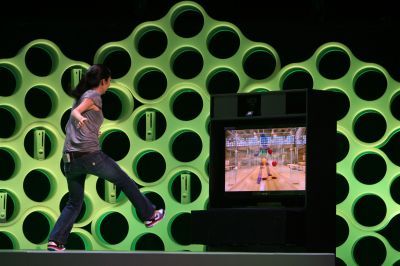Microsoft's 'Natal' for Xbox 360 coming in late 2010

Microsoft announced Wednesday that "Project Natal" gesture recognition games, where the human body serves as the controller, will be released at the end of the year for the Xbox 360 videogame console.
"2010 is going to be the biggest year in Xbox history," Robbie Bach, the head of Microsoft's entertainment and devices division, said in a speech which kicked off the annual Consumer Electronics Show (CES) here.
"This holiday 2010 you'll be able to bring home Project Natal which will work with your existing Xbox 360 console," Bach told exhibitors and journalists at the gadget extravaganza.
"With Project Natal we are removing the last barrier to gaming - the controller," he said, providing "an entirely new but completely natural way to play.
Bach's announcement followed a keynote speech by Microsoft chief executive Steve Ballmer, who said the US software giant has raked in 20 billion dollars from sales of 39 million Xbox 360s and more than 500 million associated games.
A prototype of Natal was unveiled to rave reviews by Microsoft at the Electronic Entertainment Expo (E3) videogame industry show in Los Angeles in June.
The technology uses a 3-D camera and gesture recognition software to let people play videogames using natural body movements instead of handheld controllers.
Natal lets people play driving games, for example, by simply moving their hands as if turning a car steering wheel.
On-screen figures in boxing, skateboard, soccer and other sports titles mimic the body movements of real-world players.
Microsoft last year released a software kit for videogame makers interested in designing titles to take advantage of Natal's capabilities.
British videogame icon Peter Molyneux, chief of Lionhead Studios, has described Natal as a "landmark in computer entertainment."
Join our commenting forum
Join thought-provoking conversations, follow other Independent readers and see their replies
Comments
Bookmark popover
Removed from bookmarks